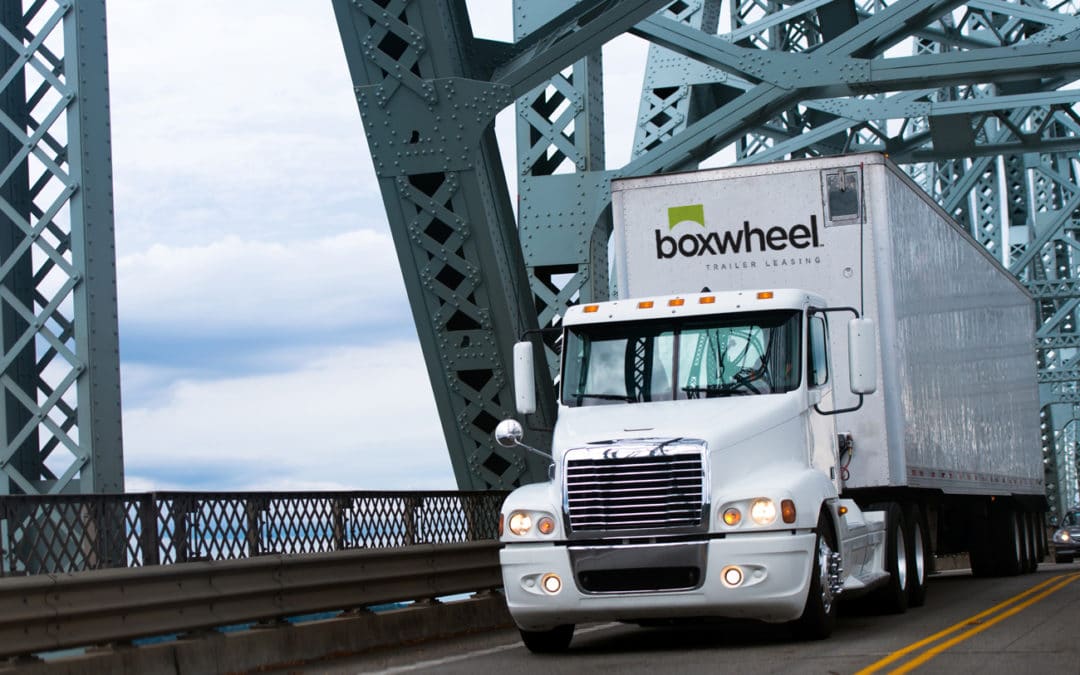COVID-19 and the restrictions implemented to get it under control have caused significant slowdowns in many industries. However, transportation is not currently one of them. While each transportation market segment is experiencing the effects of the pandemic differently, overall the need to move goods and materials remains high, and as a result, the need for semi trailer rentals and leasing has remained high as well.
One measure of demand is American Trucking Associations’ advanced seasonally adjusted (SA) For-Hire Truck Tonnage Index. It increased 8.7% in June following a slight decrease of 1% in May. That jump puts it within 1.3% of the June 2019 number.
According to the organization’s Chief Economist Bob Costello, “Not surprisingly, as more states lifted restrictions in June, truck tonnage was robust. While the gain in June was the single best month since January 2013, the solid gain was not enough to put tonnage back to pre-pandemic levels, but it is close.”
It has also helped the industry that many types of transportation have been deemed “essential” by the government. This has allowed trucking companies to maintain consistent operations in most cases. Plus, the strong economy leading up to the pandemic had resulted in a backlog of work for many markets and organizations that is keeping transportation companies busy.
Tracking Over the Road Semi Trailer Requirements
ATA’s Costello goes on to say that it’s important to keep an eye on how the pandemic and the response to it evolves. Already there are areas where case counts have increased and new restrictions have been imposed. But everyone in the transportation ecosystem—from manufacturers and retailers to over the road semi trailer providers—is hopeful that the “hotspots” will be addressed quickly, first and foremost to keep people safe but also so that commerce can continue and the economy can hold its ground.
It’s been our experience that many businesses are responding to this uncertainty by being proactive about getting orders out the door and on their way to customers. They’re choosing to “make hay while the sun shines,” as farmers like to say.
One way to maximize that strategy is for companies to augment their fleet of over the road semi trailers and cartage semi trailers with rentals so that they can increase their shipping volume. While there is cautious optimism in the transportation industry that the economy will rebound quickly once effective COVID-19 treatments and a vaccine become available, it makes sense for businesses to generate as much revenue as possible now in case that takes longer than expected and economic conditions worsen.
Another tactic companies can use to accelerate revenue generation is to leverage rented semi trailers to expand their storage capacity. In this way, they’re able to receive and manage more raw materials, components or products without having to invest in building or leasing additional warehouse space.
Surprising Statistics on Roadway Safety During COVID-19
While companies have continued to haul their goods using their own trailer fleet or rented semi trailers, studies are showing that U.S. roadways are less crowded overall than before the COVID-19 pandemic. No doubt this is because of changes like an increase in telecommuting, the cancellation of most types of in-person activities, and the reduction of operating hours for many businesses.
Surprisingly, however, less congestion hasn’t made the roads safer. In fact, according to the National Safety Council, “Preliminary estimates based on May data from all 50 states indicate that for the third month in a row, road users in the U.S. were at a higher risk of dying from a motor vehicle crash. As reported in Injury Facts, the fatality rate per miles driven in May – when most of the country was deep in quarantine from the pandemic – jumped a staggering 23.5% compared to the previous year, despite far less traffic on the roads.”
The data also shows that the mileage death rate per 100 million vehicle miles driven was 1.47 in May 2020 as compared to 1.19 in 2019.
From the perspective of a semi trailer rental company like Boxwheel, there are a number of takeaways from this concerning statistic. One is that transportation pros need to be vigilant and ensure that their truck and semi trailer are prepared for hot-weather driving. Another recommendation is that truckers capitalize on the maintenance benefits that come from leasing or renting a semi trailer in order to minimize the risk of an equipment malfunction that can be dangerous both for them and others on the road.
Life in the Wake of COVID-19: New Transportation Challenges and Opportunities
Whether your company is one of those that has stayed active during the pandemic or you’ve experienced a slowdown, this is a good time to establish a relationship with a semi trailer rental company. At Boxwheel, we’re helping busy companies meet their increased transportation and storage needs with a wide range of equipment and fast, efficient rental and leasing processes. We’re also having conversations with organizations that are using this downtime to review and revise their business strategies, including how they move and manage goods and materials. For many, renting or leasing semi trailers now makes more sense than owning and operating a trailer fleet.
If you have questions about our extensive inventory of dry van, liftgate, refrigerated and flatbed semi trailers for rent or lease from our locations in Colorado and Arizona, please contact Boxwheel Trailer Leasing at your convenience. We’re happy to talk with you about how renting or leasing might be beneficial to your company, both now and after we’ve all got the pandemic in our rearview mirror!

